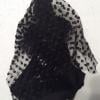Search the Community
Showing results for '"Weight gain"'.
Found 15,851 results
-


What Will It Cost Me To Get Weight Loss Surgery?
Alex Brecher posted a topic in PRE-Operation Weight Loss Surgery Q&A
Weight loss surgery? Really? For me? Why? What’ll it cost me? Perhaps a better question is “What’ll it cost you if you don’t?” With today’s uncertain economy and rising healthcare costs, it’s normal to wonder if now is the time to consider the LAP-BAND® AP System. Extra weight on a person often goes hand in hand with extra financial burden. Obesity can have significant medical costs over time. Weight loss surgery can help reduce the cumulative cost of living with obesity: like weight loss programs, prescription medicine and hospital visits. Knowing this, you may want to consider these questions: What are your current out-of-pocket healthcare expenses? Are they due to go up? What are your current prescription and over-the-counter medication costs? Are they due to go up? How many times a year do you see a doctor or specialist? Has that gone up over time? How many days have you missed work over the past few years? Has that gone up? How much have you spent on non-surgical weight loss programs? (WeightWatchers®, Jenny Craig®, etc.) Did that work? How much have your costs for groceries and dining out gone up? How much have you spent on additional clothes due to your weight gain? Acting now by using the LAP-BAND® System to help you significantly reduce your weight — may also reduce your weight-related costs! -
Hey everyone. I'm going to write about my experience with Dr. McCloskey since the only thread written was by me 4 months ago! I finally have a surgery date, which is Friday! Dec 17th. And I'm really REALLY nervous. My experience so far with Magee hospital has really been great. The staff is very nice and comforting. I had to complete a 6 month supervised diet, and to be honest I didn't lose any weight. I actually gained, and I was really embarrassed, but the staff never mentioned my weight gain. I had my initial visit with McCloskey about 1 month into my diet, and she is an extremely nice, intelligent woman. I get ridiculously nervous at any appointment, and I think she really zoned in on that and tried to make me feel as comfortable as possible. About 4 months in they set up a visit with the Nutritionist and a Psyc eval which took place one appointment after the other at Magee. About 30 minutes each. About 5 months into my diet they set up the upper GI and chest x-ray which also took place same appointment and at Magee. The upper GI was definitely not fun, but for some people it's not a big deal, so it's just going to depend on the person. I have a bad gag reflex and swallowing the barium was really hard. Most people have to chug it, but I really only got a few small sips down and they said they got a good enough picture. Because most of my testing was done at Magee I didn't have to worry about faxing much paperwork. Most of my doctors are part of UPMC, so Magee was able to pull the results of my diet, EKG, pap and stress test (which most people don't have to get, my EKG was abnormal, but ok) right from the computer system. I had my Pre-op visit and informational class 2 weeks before surgery. It takes about 2 hours. I met with Dr. McCloskey and she took time to answer any questions that I had, was not rushed at all. And although she probably hears the same questions everyday, she really took the time and explained everything in depth. She does not require a 2 week pre-op diet unless your BMI is above 60. Just Clear liquids the day before surgery. It is 1-2 nights in the hospital, (mostly 1) and everyone has a private room, so one person is allowed to spend the night with you. They do put a cath in during surgery because they want to monitor liquids going in and out. It will be taken out when your IV comes out. (Which I'm nervous about, but told you really can't feel a thing). She said surgery takes about 45 min-1 hour. She is now doing either one cut through your belly button, or the typical 5 small incisions, which I'm pretty sure depends on the person as well. Sorry if this was long, but hope it helps all you pre-op people considering Dr. McCloskey! I'll definitely have more information after Friday. Wish me luck!
-


I am a gastric sleeve failure
Babbs replied to scliftonw's topic in POST-Operation Weight Loss Surgery Q&A
No. Sleeves don't really stretch. The stretchy part, or fundus, was removed during surgery. It would take years of grossly overeating to the point of vomiting to actually stretch it enough to where you're eating significantly enough to cause weight gain. Can the sleeve relax and complete healing over time allowing more food to be eaten? Absolutely.That's why it's important for us not to just count on sleeve restriction and pay more attention to what we are eating for when that time comes. And to the OP: You can have 10 different weight loss surgeries, but the fact of the matter is if your head isn't in the game, NONE of them will work. Like Ann said, look inside and try to figure out what caused you to not succeed before, and then figure out the steps it will take to help you become successful whether you decide on revision surgery or give this one antother go. Your sleeve hasn't changed, it's just waiting for you to. -


Sleeve revision to RNY or Bypass reason
SeattleLady replied to AchieveGoals's topic in Revision Weight Loss Surgery Forums (NEW!)
GERD, gastritis, hernia and some weight gain. Most days my GERD is so bad that I feel like heck. I just want to get it done and over. Sent from my SAMSUNG-SM-G935A using BariatricPal mobile app -


Greetings from Australia... freaking out!
OzRoo replied to NeedaBreak4Me's topic in Gastric Sleeve Surgery Forums
@@Katieisin Good luck post op, and I hope all goes well for you. I did not have a band, just the sleeve in March 2016. Initially I had bad reflux problems, and I swapped from rabeprazole to Nexium 40mg, and this worked wonders for me. Now, 5 1/2 months later, I am slowly weaning myself of Nexium, and so far so good. Nexium is long lasting, so I am now taking it every 2nd day, instead of every day. I have lost 28 kg so far, and even though I am not exercising much lately, I still keep losing. I also see my bariatric psychologist for support, and read up a lot on this forum. I have an auto-immune thyroid disease, and this helped my massive, rapid weight-gain in the past 2 years. At 54, I hope you also had your female hormones checked, as an imbalance there can also help weight-gain. You are early post op, and it is great that you are following your post op plan. For me, the only time I had few stalls or small weight gain was when I deviated from my food plan, and had slider foods such as ice-cream or frozen yoghurt in larger quantities. This aggravated my sugar craving, so I stopped eating those foods and substituted fruit instead. I also weaned myself off Equal, and have been using Stevia instead. Much better as Stevia does not play havoc with blood sugar levels. As far as I know, the sleeve has worked for many of us, providing we stick to the food plan and portion sizes. My appetite has diminished significantly at the moment, even though I can now eat slightly larger portions, but with Protein first and eating good food, I am still losing weight. Next step, after I reach my goal weight-gain, will be maintenance. I will see my dietician then, again. So, give it time and good luck! Say hello to Melbourne from me I used to live in Melbourne and in Sydney before Queensland. -
A VSG procedure results in reducing the capacity of your stomach. That's it. That's all it does. I have NEVER read of a true "failed" sleeve. Stalls are normal. Failing to meet goal is not uncommon. Gaining all your weight back can happen. But NONE of these so called failures are the result of your sleeve not doing what it's supposed to do. "failures" are thpically the result of poor choices, unrealistic expectations, certain medications that cause weight gain, and/or other medical conditions. However, if you can eat 4-6 cups of food in one sitting, then yes, you have a failed sleeve. And, like cowgirljane mentioned, you can't possibly declare weight loss success or failure until you are at the very least a year or two out. And true success is really never reached....you not failing your sleeve is a challenge to be met every day for the rest of your life.
-


The weight creeped up on me. Time to get back on track
Danny Paul replied to lark60's topic in WLS Veteran's Forum
Being 18 months out I constantly think about weight regain. I'm glad to see that even when there is a weight gain with determination and mindfulness there is a solution. Thank you all for sharing your stories and I wish you success and luck in your journey to lose the weight. -


My tips and why I Don't recommend Sleeve surgery for long term
Arabesque replied to strawberryga's topic in Gastric Sleeve Surgery Forums
A bypass is usually revised to a sleeve if the bypass fails: weight gain, unmanageable vitamin malabsorption issues, excessive dumping complications,... Much like a sleeve can be revised to bypass because of weight gain, GERD, etc, As others have said, any weight loss surgery can fail if you don't make permanent changes to how, what & why you eat. Post surgical benefits like loss of appetite & your restriction don’t last. They should help you to kick start your weight loss & give you time to assess your eating & establish new eating habits. Sounds like you relied on the side effects of your bypass to influence what you ate. I’d expect your bypass would have failed sooner if you didn’t experience dumping (50-60% don’t with bypass). You mentioned your tummy has stretched. It does because it is a muscle & stretches & contracts. Can’t believe any doctor would say it can’t. Consistently eating larger portions will cause it to stretch more & contract less. But is your tummy as large as it was before you had either surgery or about the size of someone who never had a weight issue? The success you have with either surgery is dependent upon you, with consideration of any complications you may have of course. We all have our reasons for choosing the surgery we did & the effort we put in to make changes are reflected in the success we have or didn’t have. Excluding the life changes that can sometimes sabotage our intentions. I chose sleeve because of the lower risk of malabsorption & dumping. I lost all my weight & more. I don’t eat like friends & family who carry weight. I don’t eat exactly like friends & family who never carried weight either. I have to work a little harder & listen more carefully to my body (what it needs, how it reacts, etc.) because it’s easier for me to gain weight. I’m sorry you are unhappy with your revision. -


My First Consult Now I'm Confused!!
Nanook replied to slynclark's topic in PRE-Operation Weight Loss Surgery Q&A
I have a little experience with excess skin, lap band and RNY. I was always on the heavy side since childhood and when I was 19 I lost over 100 lbs fairly quickly with the help of drugs that you could get very easily back then but were not done through a prescription. I then gained it back over the course of a year and then the following year lost it again. During those two weight losses I had no extra skin. I then put on about 25lbs became pregnant and had a 9lb11oz baby and stretched out my stomach, gained some weight over a 3 year period and had a 10+lb baby and stretched out my stomach a lot more. So basically even though I lost weight quickly the first two times I had no extra skin and didn't until I had to the two babies. I don't know if it's a quick weight gain then loss that creates the skin, genetics or what but I don't think you can say that with lap band you'll have no extra skin and with RNY you will. I will always have extra skin no matter what. My daughter was a quick gainer of weight prior to her RNY. I think she may have put on an extra 60 lbs fairly quickly at one time so since her surgery she's having extra skin issues and is in her 20s. So maybe it's a quick gain that does it not necessarily a quick loss that guarantees the extra skin or both. Just a thought. It does take more time to recover from RNY as I have been there since my daughter's surgery this past May. There are many more things you have to take in order to supplement your diet basically for the rest of your life. It works, I've heard people can gain back weight after a period of time but not as much as the had lost in the beginning. I personally did have a difficult time letting my daughter go through this as she's my flesh and blood and no one wants their child to go through something this traumatic but then I knew if she didn't she'd be miserable and she chose this surgery over the lap band as she felt it had a better rate of success. I don't know if my issues had that much to do with it as she's a pretty smart cookie and makes up her own mind. Nancy:smile: -


Almost time to submit to Aetna
tamlalynn replied to tamlalynn's topic in PRE-Operation Weight Loss Surgery Q&A
Your plan should mention something about weight gain. My plan required an exercise program with documentation. Sent from my SM-G530T using the BariatricPal App Guideline says "there should be no net weight gain". I hope that means over the entire 90 day process. It's not that specific so I am keeping my fingers crossed and was wondering if anyone else had experienced any issues. Sent from my SM-T230NU using the BariatricPal App -


Five years banded and I have fallen off the bandster wagon,I need some advice...
DELETE THIS ACCOUNT! replied to schampange's topic in Tell Your Weight Loss Surgery Story
If you are having port pain, gallbladder pain, and a band too tight your first priority needs to be seeing your surgeon immediately. I'm not trying to scare you, but walking around with a band too tight for 4 years is just begging for a major slip. I guarantee the cost of having your band removed entirely because of neglect would be far more expensive than the cost of an office visit and a slight unfill. Bands too tight can also cause weight gain, btw. Yet another reason to get into your surgeon. Best wishes. -
For the last meal of the day would you take a shake or a low carb protein bar? I have nu go bars which are 20 g protein and 20 g carb (not from sugar, but from fiber and sugar alcohols). I have been taking shakes before bed for several months now and want to try the bar if it is not going to mess with weight gain. What do you think?
-
Majority of us falls of the track for whatever reason. Just pick yourself up and think about what you were doing to lose weight. Lapband is only a tool and you have to let the tool work for you. This is not easy and it's definitely not a magic band. Keep your head up, don't be discouraged, and have faith in yourself that you can do it. Please don't harp on the weight gain, it sets you up for a downward spiral.
-
SouthBeach Diet Tips and Guides The SouthBeach Diet is different from the Atkins diet in that it is not a low carbohydrate diet. Regardless of which phase you are currently in, you should follow these recommendations: Drink a minimum of 8 glasses of Water, decaffeinated beverages such as club soda, tea, coffee, or decaffeinated sugar-free soda every day Limit your intake of caffeine-containing beverages to 1 cup each day Take one Multivitamin and mineral supplement daily Take 500 mg of Calcium for both men and women under the age of 50, and 1,000 mg for women over the age of 50, each day Eating can be both pleasurable and healthy as long as you eat the proper foods. All the meals in the SouthBeach Diet consist of healthy combinations of carbohydrates, Proteins, and fats. Dishes can be made by anyone and the ingredients can be found in most grocery stores. These foods will satisfy your hunger without depriving your system of the low-quality starches and sugars that caused problems with your blood chemistry in the first place. The SouthBeach Diet does not involve counting calories, fat grams, or portion sizes. This plan was designed to be simplistic and will help you understand the principles of metabolism and put it to work for your own body. A major key to success with the South Beach Diet is the Glycemic index (GI), which ranks carbohydrate foods based on the effect on blood sugar levels. When you start adding foods back into your diet in Phase 2, keep your focus on low-GI foods such as apples, berries, grapefruit, high-Fiber Cereal, and whole grain breads. Preparing For The Rest Of Your Life Mindset Change for South Beach Diet You have learned what the South Beach Diet is, how it works, and what to eat. Now, you need to get prepared to change the way you eat, for life. Start by accepting that the first couple of weeks will be a big change but one you will not regret. The first morning of this diet, you will eat a breakfast that may consist of a two-egg omelet with two slices of Canadian bacon, cooked in either spray canola or olive oil. In your old life, you may have toasted bread or a bagel and had fresh fruit or fruit juice to go along with your omelet. However, with the South Beach Diet, the bread will have to wait. Most people have been conditioned their entire life to add bread to meals. You have toast with breakfast, sandwiches on bread for lunch, dinner rolls with dinner, and cake, Cookies, or pie for dessert. However, during Phase 1, you will have to forget about the bread. It may take a few days to leave old habits behind but keep in mind that it is during this time that your body’s inability to process sugars and starches is being reversed. After trying numerous diets, most leave you feeling hungry, is one of the most difficult aspects of any diet. A common denominator seen with overweight people is that most of them skip eating breakfast. When this happens, blood sugar drops, which then increases the desire for bad carbohydrates to escalate until lunch when the entire meal is blown. Planning for South Beach Diet Planning will help you stay away from snacking or substituting things that are not healthy and could cause weight gain. Remember that once you start into Phase 2, carbohydrates will start being introduced back into your diet along with fruits. You also need to remember to eat your mid-morning and mid-afternoon Snacks, even if you do not feel like it. Some of the greatest low-fats foods to incorporate into your planning include cheese and yogurt to replace the fats since they have no bad carbohydrates. In addition, the sugar is found in the lactose, milk sugar, is one of the things you can have with the South Beach Diet. The South Beach Diet is a lifetime change, lifetime commitment, and a lifetime of health and vitality! How Does The South Beach Diet Work? As mentioned, the South Beach Diet is unique, successful, easy, and works in a three-phase process. Unlike many other so-called diets, with the South Beach Diet, simply substitutes your bad carbohydrates and fats for good ones. After trying this, you will be amazed by how well and quickly it works. South Beach Diet Phase 1 South Beach Diet Phase 1 lasts for two weeks. During this first phase, you will eat normal meals of chicken, beef, turkey, fish, and shellfish, lots of vegetables, eggs, cheese, nuts, and garden salads using 100% olive oil for your salad dressing. Each day for 14 days, you will eat three, well-balanced meals. While eating until your hunger is satisfied may go against most diets, with the South Beach Diet, it is part of the plan. Trying to lose weight and become healthy by depriving the body of food makes no sense. In addition to the three meals each day, you will also eat a snack between breakfast and lunch, and then again between lunch and dinner. Even if you do not feel like eating these snacks, for the South Beach Diet to work, you need to, and after dinner, you will even have dessert. Additionally, during this phase, you can drink all the coffee and tea you want and be sure to drink lots of water. You may be thinking that this is a lot of food - it is! With most diets, you deprive your body, eating only small portions of foods that are unappealing. The change you will make during this phase is that you will cut out all bread, rice, potatoes, Pasta, baked goods, fruit, candy, cake, cookies, ice cream, or sugar. Keep in mind that these eliminated foods will be added back into your diet, starting in Phase 2. In addition to taking these foods out of your diet temporarily, you will also need to avoid beer, or any kind of alcohol. Once you start Phase 2, reasonable amounts of wine can be added back in. Instead of feeling overwhelmed about the foods that will be taken out of your diet during the first two weeks, stop and think about this for a minute. To achieve a life of health and lose unwanted weight, two weeks is a small investment to make. After all, you are worth it! The first two or three days will be somewhat challenging, but breaking any bad habit starts out a little bumpy. Once you pass this small hurdle, the rest of the time will go by quicker than you think. When you see the results that these changes bring, you will be glad you did not give up! 30 Things You Need to Know About The South BeacH The South Beach Diet -- despite sometimes being referred to as one -- is in fact not a low-carb diet plan. The South Beach Diet is based on eating the right carbohydrates (i.e. "good carbs") and fats. Eventually, you will be satisfied without eating the carbs you normally do, as your body adjusts to the good carbs you are eating. It is completely acceptable and recommended on The South Beach Diet to eat until you are fully satisfied. The first two weeks of The South Beach Diet are called Phase 1. Phase 1 is the strictest part of The South Beach Diet and provides the fewest allowable foods as compared to the other two Phases. The purpose of Phase 1 of The South Beach Diet is to adjust the way your body reacts to sugar and starches. You will lose the most weight during Phase 1 (up to 14 pounds), especially belly fat. During Phase 1 you will not be eating bread, rice, potatoes or pasta. The first few days of Phase 1 are the most difficult part of this diet. Baked goods, sweets, and fruits are completely off-limits during Phase 1 as well. Alcohol of any kind is not allowed during Phase 1. During these two weeks you'll be eating high-fiber foods such as vegetables and salads, as well as fish, meat, chicken, eggs, non-fat yogurt, low-fat cheese, and nuts. The South Beach Diet allows you six meals a day: three main meals, two snacks, and one dessert. You'll find a variety of recipes in the book, such as Marinated Flank Steak, but you don't have to cook to follow the plan. The science behind this diet is the Glycemic Index, which measures how a food impacts your blood sugar. Since salads and vegetables are naturally low on the Glycemic Index, you can consume virtually unlimited amounts of them on this plan. After Phase 1, those powerful cravings for candy, baked goods and "bad carbs" like white bread will be a thing of the past. Eventually, you can eat anything you want and still be considered on the program. If you feel hungry during Phase 1, increase the amounts of allowable foods you are eating.<SCRIPT>zSB(3,3)</SCRIPT> Eliminating "bad carbs" from your diet is a way for this diet to give your bloodstream a fresh start, free of those insulin-spiking starches and sweets. You can quell your sweet tooth: Sugar-free Gelatin such as pre-packaged sugar-free Jello cups are an easy and recommended dessert during Phase 1. Dr. Agatston provides recipes for a number of Phase 1 desserts that use reduced-fat ricotta cheese. Obese individuals may choose to stay on Phase 1 for longer than two weeks. Most people should advance to Phase 2 after two weeks to prevent getting burned out. Phase 2 is much more liberal than Phase 1. You will return previously "forbidden" foods such as whole grain breads, fruits, and sweet potatoes back into your diet (albeit a little bit at a time) during Phase 2. Weight loss will slow down significantly during Phase 2. Phase 3 is the maintenance Phase of The South Beach Diet. You can add any foods you wish unless you find that you are gaining weight. You can start over in Phase 1 again if you see you are gaining weight during Phase 3. You can start over in Phase 1 again if you see you are gaining weight during Phase 3.
-


Is anyone out there NOT hungry?
Jachut replied to Phranp's topic in POST-Operation Weight Loss Surgery Q&A
I spoke at a lapband info night last week just to give my experience as someone who's been successful with it. Before i got up, my surgeon spoke for about 40 minutes and he made a big deal about how the lapband provides satiety and lack of hunger and that is how it is supposed to work primarily - more so than restricting what you eat. I thought "wow, that hasnt been my experience". Early on, I had that. For about six months. I lost interest in food, I mean, I enjoyed what I ate, but I wasnt hungry, didnt have head hunger, never felt physical hunger. That didbnt last for me. I have a normal appetite, normal hunger levels and a fair degree of head hunger these days, I've just learned to deal with them. So yes, i do get hungry and i very often just want to eat for no particular reason. Perhaps more fill would solve it, but I'm at a healthy weight and dont need to lose, so I havent sought that out. I'm about to get unfilled in about an hour becuase I'm having another surgery next week. Part of me so doesnt want to do that, I'm terrified of rebound hunger and weight gain but a part of me is also VERY interested as to how much hunger/restriction/control this band is providing me. I'll report back! -


Questions for Alcohol Drinkers ONLY!
VSGAnn2014 replied to Cape Crooner's topic in Gastric Sleeve Surgery Forums
I had never heard that before. But after some quick google-fu, and although this truism is repeated a lot online, apparently there's no clear-cut relationship between alcohol and obesity / metabolism / weight gain or loss. In fact, the relationship sounds fairly nuanced, depending on how much you drink, how often you drink, how obese / active you are, etc.: https://en.wikipedia.org/wiki/Alcohol_and_weight One of the research findings includes this one: "Alcohol also appears to increase metabolic rate significantly, thus causing more calories to be burned rather than stored in the body as fat (Klesges et al., 1994)" -
Well, I am off to the Dominican Republic tonight to lay on the beach and snorkel when I feel like it. I hope that I can come home with zero weight gain like Tami. Talk with you next week!
-


Carbonated Drinks and Fried Foods
Paul11011 replied to Larae's topic in General Weight Loss Surgery Discussions
Worth reading. Portion significant to this conversation are in bold. "Why Carbonated beverages are "TABOO" after Bariatric Surgery" By: Cynthia Buffington, Ph.D Did you drink carbonated soft drinks prior to your Bariatric surgery? Do you still consume carbonated soft drinks? Were you advised by your surgeon or his/her nutritional staff NOT to drink carbonated drinks after surgery? Do you understand why drinking carbonated beverages, even if sugar-free, could jeopardize your weight loss success and, perhaps even your health? A carbonated beverage is an effervescent drink that releases carbon dioxide under conditions of normal atmospheric pressure. Carbonated drinks include most soft drinks, champagne, beer, and seltzer Water. If you consume a soft drink or other carbonated beverage while eating, the carbonation forces food through he stomach pouch, reducing the time food remains in the pouch. The less time food remains in your stomach pouch, the less satiety (feelings of fullness) you experience, enabling you to eat more with increased risk for weight gain. The gas released from a carbonated beverage might "stretch" your stomach pouch. Food forced through the pouch by the carbonation could also significantly enlarge the size of your stoma (the opening between the stomach pouch and intestines of patients who have had a gastric bypass or biliopancreatic diversion). An enlarged pouch or stoma would allow you to eat larger amounts of food at any one setting. In this way, consuming carbonated beverages, even if the drinks are diet or calorie free, may cause weight gain or interfere with maximal weight loss success. Soft drinks may also cause weight gain by reducing the absorption of dietary Calcium. Dietary calcium helps to stimulate fat breakdown and reduce its uptake into adipose tissue. Epidemiological and clinical studies have found a close association between obesity and low dietary calcium intake. Recent studies have found that maintaining sufficient amounts of dietary calcium helps to induce weight loss or prevent weight gain following diet. The high caffeine in carbonated sodas is one way that drinking carbonated soft drinks may reduce the absorption of calcium into the body. Studies have found that caffeine increases urinary calcium content, meaning that high caffeine may interfere with the uptake of dietary calcium into the body. Keep in mind that one 12 oz. can of Mountain Dew has 50 mg of caffeine, and Pepsi and Coke (diet or those with sugar) contain 37 mg of caffeine each. Colas, such as Pepsi and Coke (diet or with sugar), may also cause calcium deficiencies from the high amounts of phosphoric acid that they contain. Phosphate binds to calcium and the bound calcium cannot be absorbed into the body. Both animal and human studies have found that phosphoric acid is associated with altered calcium homeostasis and low calcium. Drinking carbonated beverages may also reduce dietary calcium because these beverages replace milk and other nutrient-containing drinks or foods in the diet. Several studies report inverse (negative) relationships between carbonated beverage usage and the amount of milk (particularly children) consume. Carbonated beverages, then, may reduce dietary calcium because of their high caffeine or phosphoric acid content or because drinking such beverages tends to reduce the consumption of calcium-containing foods and beverages. Such deficiencies in dietary calcium intake may be even more pronounced in Bariatric surgical patients. Calcium deficiencies with Bariatric surgery have been reported following gastric restrictive and/or malabsorptive procedures. The reduced amounts of calcium with bariatric surgery may occur as a result of low nutrient intake, low levels of Vitamin D, or, for patients who have had gastric bypass pr the biliopancreatic diversion (with or without the duodenal switch), from bypass of the portion of the gut where active absorption of calcium normally occurs. Drinking carbonated beverages may further increase the risk for dietary calcium deficiencies and, in this way, hinder maximal weight loss success. For all the reasons described above, including calcium deficits, reduced satiety, enlargement of pouch or stoma, drinking carbonated beverages, even those that are sugar-free, could lead to weight gain. Carbonated beverages that contain sugar, however, pose a substantially greater threat to the Bariatric patient in terms of weight loss and weight loss maintenance with surgery. Sugar-containing soft drinks have a relatively high glycemic index, meaning that blood sugar levels readily increase with their consumption. The rapid rise in blood sugar, in turn, increases the production of the hormone, insulin. , that acts to drive sugar into tissues where it is metabolized or processed for storage. High insulin levels, however, also contribute to fat accumulation, driving fat into the fat storage depots and inhibiting the breakdown of fat. Soft drinks with sugar are also high in calories. An average 12 oz. soft drink contains 10 teaspoons of refined sugar (40g). The typical 12-oz. can of soda contains 150 calories (Coke = 140 calories; Pepsi = 150; Dr. Pepper = 160; orange soda = 180; 7-up = 140; etc.). Soft drinks are the fifth largest source of calories for adults, accounting for 5.6% of all calories that Americans consume. Among adolescents, soft drinks provide 8%- to 9% of calories. An extra 150 calories per day from a soft drink over the course of a year, is equivalent to nearly 16 pounds and that weight gain multiplied by a few years could equate to “morbid obesity”. In addition to the adverse effects that carbonated drinks have on weight loss or weight loss maintenance, carbonated beverages may also have adverse effects on health. Soda beverages and other carbonated drinks are acidic with a pH of 3.0 or less. Drinking these acidic beverages on an empty stomach in the absence of food, as Bariatric patients are required to do, can upset the fragile acid-alkaline balance of the gastric pouch and intestines and increase the risk for ulcers or even the risk for gastrointestinal adenomas (cancer). Soft drink usage has also been found to be associated with various other health problems. These include an increased risk for diabetes, cardiovascular disease, kidney stones, bone fractures and reduced bone density, allergies, cancer, acid-peptic disease, dental carries, gingivitis, and more. Soft drinks may, in addition, increase the risk for oxidative stress. This condition is believed to contribute significantly to aging and to diseases associated with aging and obesity, i.e. diabetes, cancer, cardiovascular disease, liver disease, reduced immune function, hypertension, and more. From the above discussion, do you now have a little better understanding of why your Bariatric surgeon or Bariatric nutritionist advised you NOT to consume carbonated sodas after surgery? Your Bariatric surgeon and his/her staff want to see you achieve the best results possible from your surgery – both in terms of weight loss and health status – and so do YOU. Consider the consequences of drinking such beverages now that you understand more clearly why such drinks are “Bariatric taboo”. -


I REALLY hate PCOS...I feel defeated...
SleeveToBypass2023 replied to SleeveToBypass2023's topic in POST-Operation Weight Loss Surgery Q&A
So I spoke with my PCP and I have an appointment to come in next week because some new and fun things are going on. So I'm noticing pain in my lower abdomen. Happens mostly when I go #2 and I didn't think much of it. Then it started happening at other times, and it would get so bad I couldn't take a full breath. And even the lightest touch on my abdomen would have me in tears. Can last anywhere from 5 minutes to almost an hour, then just goes away. Having nausea when I eat, and sometimes when I don't. She doesn't like the sound of that, so I need to see her and they can do an ultrasound in her office and refer me to yet another specialist if needed. I still have no restriction at all whatsoever, which surprised her. But we're still waiting on the results of my scope, and now this. She said the rapid weight gain and the pain and nausea could be related and she wants to get to the bottom of it. -


Following surgery with Weight Watchers
bossyj replied to Lovin2lose's topic in Gastric Sleeve Surgery Forums
Yes I'm here with you surgery 2011 weight climbing. Feeling frustrated considering many options super mic injection, phentermine pills. Lol feeling of despair right now. It's a head game my mind against my body. My body has been wining lately n I got the weight gain to prove it. Lol trying to get my mind right to win this fight. I'm 53 and are often told I look good but for me to have gone from my lowest low of 148 to now 195 not feeling euphoric right now. Lol[emoji30] [emoji30] [emoji30] [emoji30] Sent from my SM-J327T using BariatricPal mobile app -
OMG yay you!!! Don't be sadden by the small weight gain you have done AMAZING!!!! I agree with maybe making some small goals so you don't feel stressed about the 30 pounds. I like to make my next goal hitting the next set of ten's as I go. If I get on the scale and It's 248 I say YES!! Now 239! Just get me to the next tens lol Also I know sometimes we get burned out on what we are eating. Get a great cook book or search out some recipes that are different and incorporate the foods you like to make something new. I find I cook more now that I am making better food choices and the family loves it too!!! (thumbs up) YOU ARE DOING AWESOME!!!
-


Frangipani & TexasBecky get Reconstructed
LadyBugRed replied to TexasBecky's topic in Plastic & Reconstructive Surgery
LOL Salsa...I was sitting here thinking the exact same thing about Frangi and Stein Mart!!! I'll be back on the exercise thread tomorrow. Nursing a back pull . But...no weight gain!!:biggrin2: -


Vsg And Pregnancy-Losing Weight After Baby
NaomiesMommy replied to NaomiesMommy's topic in Pregnancy with Weight Loss Surgery
Yay!!! Congrats butterfly!! How exciting!! Eh. That 15-25lbs weight gain is for "normal" pregnancies. If I may say... We aren't normal lol. We are modified. My doctor saw no issue with me gaining the 65. She had the bypass years ago and I thank her for recommending the surgery to me!! The surgery is permanent.. We WILL lose the weight, it's just a matter of when! My appetite has already started to go back to the way it was before the pregnancy. What I want to know is....when does it go back to the way it was completely and how does breast feeding facto in? Helpful or hurtful in the weight loss process? Enjoy the pregnancy! hoping someone replies who has had the sleeve and a baby and Is back on track -
Hello. I’m in Australia so I went to the local private hospital. It’s been good so far, I was well hydrated before the procedure and have been on drips since. I’m going home tonight. My surgeon likes to keep people a few days post to up your fluids before they send you home. If I keep drinking as well as I have been I will be good, now the focus is protein. I’m one of the lucky ones, I can still drink, and enjoy, water. My weight gain was due to bad food choices, overeating and neglecting my health. My nutritionist has told me to stay on liquids for another week and then purée/soft for 4 weeks. I’ve been told to stick to 1/2 cup per meal of food rich in protein.
-
HP, JJ, ZZ ~ Thanks so much for the welcome back! I love you girls so much! I'm glad to be here again! ZZ ~ What kind of help are you needing from your LBT buddies? Someone to feel your pain, or someone to get real with you. I can do either, just let me know where you are in your head, girlfriend. CharlieTuna ~ I don't know how long you've been here. I almost called you CT. Did Juli do here knicknaming duties with you yet? <wink> Losing the inches is fantastic! Just fantastic! Those bad old scales don't tell a good story at all...pounds are not the way to measure....it's just the way everyone is used to. Inches and body fat % is the way to measure. Clothing is the way to measure. Particularly if you work out. So tell me what you do for excercise and resistance training and tell me about your diet? Maybe I can help? I would be willing to bet that you and ZZ have the very same problem right now with weight gain: you are not eating enough or often enough. That scares your body into storing (depositing fat) every bit of energy (food) you put into it if it thinks there is a shortage of food available. HP ~ Inquiring minds want to know? What is the spinning program that you joined and downloaded? I need something to make the trainer more interesting. Is it expensive?










